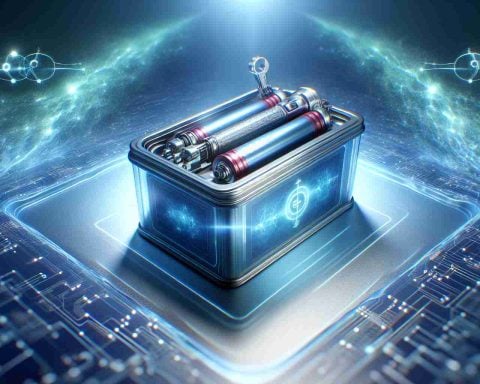- Toyota is launching a completely owned EV plant in Shanghai by 2027, focusing on the premium Lexus brand.
- The plant, located in the Jinshan district, aims to produce approximately 100,000 units annually.
- This move makes Toyota the second foreign automaker, along with Tesla, to fully own a plant in China.
- About 1,000 new jobs are expected to be created, boosting Shanghai’s local economy.
- The initiative follows China’s easing of restrictions on foreign car production, allowing Toyota independent operation.
- Toyota’s strategy aligns with global EV trends and enhances engagement with the Chinese market.
Toyota, a powerhouse in the automotive realm, is turning heads as it prepares to unveil a wholly-owned electric vehicle (EV) plant in dynamic Shanghai by 2027. In a bold leap forward, Toyota is gearing up to strengthen its grip on the premium EV sector with a focus on its acclaimed Lexus brand. Nestled in the bustling Jinshan district, this cutting-edge facility promises to be a beacon of innovation, dedicated to crafting high-end Lexus models along with their batteries.
This ambitious undertaking positions Toyota as only the second foreign automaker, joining Tesla, to set up shop with full ownership in China—a move that underscores shifting tides in global automotive relations. As the world watches, the anticipated production capacity of approximately 100,000 units annually reveals Toyota’s unwavering commitment to expanding its EV horizons.
But that’s not all—this initiative is a boon for Shanghai’s economy, expected to create around 1,000 new jobs, fostering local talent and economic growth. At the heart of this development is China’s progressive step of easing restrictions on foreign car production, giving Toyota a golden opportunity to operate independently and solidify its standing in an increasingly competitive market.
As EV trends surge globally, this strategic move signifies Toyota’s intention to engage more intimately with Chinese consumers, adapting to the evolving landscape of zero-emission transportation. Challenges await, but the promise of innovation and the thrill of a new era for Lexus in China is electrifying. Get ready—Toyota’s drive into the future is set to be one to watch!
Toyota’s Bold EV Strategy: What You Need to Know About the New Shanghai Plant
As Toyota prepares to unveil its wholly-owned electric vehicle (EV) plant in Shanghai by 2027, automotive enthusiasts and industry experts are eager to understand the implications of this ambitious venture. The new facility, located in the bustling Jinshan district, is poised to produce high-end Lexus models and their batteries, showcasing Toyota’s commitment to the premium EV sector. Here’s a deep dive into what this means for Toyota, the automotive market, and consumers.
What Are the Key Features of Toyota’s New EV Plant?
Toyota’s state-of-the-art EV plant will feature cutting-edge technology and innovation tailored to producing premium Lexus EV models. This high-capacity facility will boast a production capacity of approximately 100,000 units annually, emphasizing Toyota’s goal to expand its footprint in the EV market. Focused on sustainable practices, the plant aims to enhance efficiency while minimizing environmental impact, aligning with global zero-emission trends.
How Will Toyota’s New Plant Impact Shanghai’s Economy and Workforce?
This initiative is set to be a major economic boon for Shanghai, creating around 1,000 new jobs and fostering local talent. By investing in the Jinshan district, Toyota not only contributes to local economic growth but also positions itself as a leader in global automotive relations, taking advantage of China’s progressive easing of restrictions on foreign car production. This strategic move enables Toyota to operate independently, strengthening its market presence in China.
What Challenges and Opportunities Does Toyota Face With This Expansion?
While Toyota’s new plant offers significant opportunities to engage more intimately with Chinese consumers, there are also challenges to consider. The competitive landscape of the EV market, coupled with evolving consumer expectations for zero-emission vehicles, will require Toyota to consistently innovate and adapt. However, the promise of creating high-quality Lexus EVs and solidifying Toyota’s standing in China presents an electrifying new era for the brand.
For more insights into Toyota’s innovations and plans, visit Toyota and stay updated on their journey into the future of electric vehicles.



















